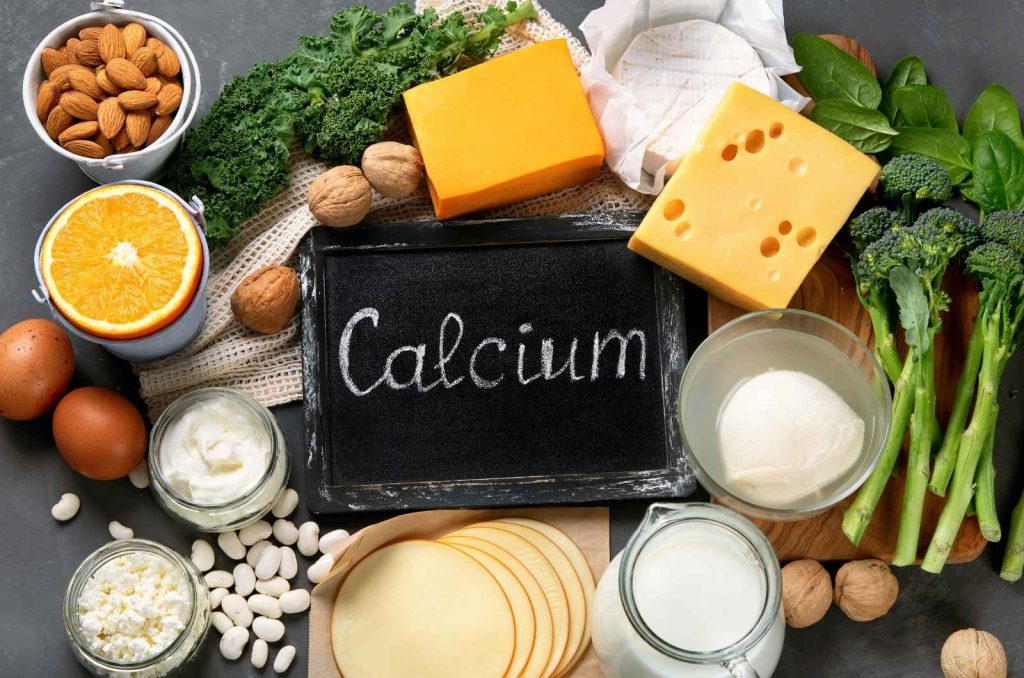
Calcium is essential to bone development and maintenance throughout life. Calcium helps blood vessels move blood, releases hormones, and conveys messages between nerves and muscle tissue.
Lactose intolerant individuals and vegans who do not consume animal products can obtain calcium through other sources, including canned sardines and Chinese cabbage; calcium-fortified fruit juices and milk alternatives; as well as dietary supplements.
?What are five importances for calcium
Calcium is best known for helping build strong bones, but this essential mineral serves other key roles as well. Calcium aids muscles to move, nerves carry messages between cells throughout the body, digestion of fats and proteins as well as being an integral cofactor for several enzymes which enable their effectiveness to work more efficiently.
Calcium deficiencies can lead to weak, porous bones prone to fracture known as osteoporosis. Most adults require enough calcium intake in their daily diet in order to protect themselves from this potentially debilitating condition which affects more postmenopausal women than other groups.
Calcium may also aid in maintaining healthy blood pressure levels, helping the heart contract and pump blood efficiently, as well as playing an essential role in the release of hormones which affect it.
Though food remains the best source of calcium, supplements can supplement any shortfall. Two popular choices of calcium supplements are calcium carbonate and citrate; with the former needing to be taken with meals while citrate may be taken alone and be more easily absorbed than its predecessor. Lactose intolerant or vegan individuals can typically find enough calcium sources such as dark-green leafy vegetables such as kale and spinach; canned salmon; tofu; or calcium-fortified soymilk to meet their recommended amounts.
?What is the most important function of calcium
Calcium is essential to creating strong bones and teeth. Calcium also plays an integral part in helping muscles move efficiently and nerves communicate messages effectively. Calcium also plays an integral part in maintaining cardiovascular health as it helps manage blood pressure and may help prevent certain cancers; you can find calcium-rich foods such as dairy products, leafy green vegetables, nuts and seeds for instance.
At least 99% of calcium stored in our bodies resides in bones and teeth. Young children and adolescents require higher amounts of calcium to develop healthy, dense bones. Following puberty, calcium requirements typically decrease slightly; however, consumption should still remain high to slow bone density loss that naturally occurs over time.
The body maintains healthy calcium concentrations by balancing how much calcium is taken in from diet and taken directly from bones if necessary. If calcium intake from diet falls below that threshold, deficiency occurs, leading to weak and brittle bones. To protect against deficiency it's essential that we consume sufficient calcium-rich foods, including nonfat milk and yogurt, leafy vegetables, fish with soft bones canned salmon as well as supplements with the USP verified mark if supplements are being taken – take small doses throughout the day for best results.
?What food is highest in calcium
People tend to associate calcium with dairy products, but nondairy foods can also contain high concentrations. Calcium can be found stored in bones and teeth to give them strength and rigidity while also aiding nerve transmission (intercellular communication), blood clotting and hormone secretion processes.
Most adults should aim to get at least 1,000 mg of calcium daily from food rather than supplements; unfortunately, most Americans fall short – particularly postmenopausal women at risk of osteoporosis – of this recommendation.
While dairy products remain the premier source of calcium, other good sources include raw and fermented dairy, soy milks, leafy green vegetables, canned fish with bones (like salmon and sardines), nut butters, whole grains like quinoa beans and chia seeds as well as fortified juices breakfast cereals snacks and breads also contain substantial amounts.
Food's calcium content can vary significantly based on its fat content; higher-fat foods tend to contain less calcium. Calcium absorption also varies, with some foods (like dairy) providing better absorption than others; for instance a 1-cup serving of cooked bok choy contains nearly as much calcium as one cup of milk but has an even better absorption rate; similarly with chia seeds which have very high bioavailability rates.
for more info: https://amorphous-calcium.com/blogs/bone-health-and-the-importance-of-calcium/osteoarthritis